BRUCE SCHWARTZ, UPPER SCHOOL TECHNOLOGY INTEGRATOR: My phone rang on a recent Sunday morning. It was my 82-year-old father wanting to know the best way to transfer content from his old computer to the new one he had just purchased. He said, “I think I have too much for a USB drive, so should I buy an external hard drive?” “Should I upload everything to the cloud?” “Is there software that makes this easy?” Great questions obviously predicated on prior knowledge.
This is an octogenarian who grew up listening to Orson Welles and Red Skelton on the radio...
Without further inquiry, my father told me that he had 73.5GB and that most of the content was JPEGs and AVI files. Being a Technology Integrator, I could not resist asking if he even knew what a GB is or what JPEG and AVI mean in terms of file types.
This is an octogenarian who grew up listening to Orson Welles and Red Skelton on the radio; a man who has never been particularly interested in math or science or engineering...or, technology. However, this is a man who recognized 12 years ago that computerization was causing the world to change at a faster rate than at any point in his lifetime.
At the age of 70, my father had embraced the use of email and Skype to stay connected with family and friends. He used the World Wide Web to learn about the cancer that my mother was battling. Likewise, he embraced the importance of learning how and why technology works and how it can be used in this rapidly changing world. He is my father, so I may be a bit biased - but that’s pretty darn impressive!
Later that evening, the phone rang and my dad’s number popped up again on caller ID. He finished watching 60 Minutes and wanted to understand why Apple CEO, Tim Cook, said it is not possible to provide the federal government with a backdoor into the iPhone’s encryption without compromising an individual’s privacy. This discussion ended with him saying how amazing technology is today, but for all of the good he is fearful that it may be moving too fast for us to comprehend the ramifications and to harness it for our betterment. He was considering the global societal impact...once again, I was impressed.
These discussions with my father, as well as, a recent The New York Times article, For the New Year, Let’s Resolve to Improve Our Tech Literacy, led me to consider how critical technology literacy is for everyone - not just for today’s school-age children - but, everyone regardless of age.
We have grown up with reading and writing as essential literacies because we must master them both to function and succeed. Likewise, technology is increasingly being woven into the fabric of our everyday lives. Our personal devices, mission critical infrastructure (i.e. electricity and water), medical care, and the global economy all rely heavily on connected digital technology - and, this will soon extend to all of our automobiles and household appliances.
With this in mind, I believe it is crucial that everyone possess a basic understanding -literacy - of how computers and the Internet work. We must understand the impact computerization has on our world in order to make rational, reasonable, ethical, and moral decisions, especially as more and more data is stored digitally.
For years, the College Board’s AP Computer Science course and exam focused 100% on only one of many programming languages, Java. Recognizing that a small percentage of the workforce will actually need to be proficient in programming and that all of us should have basic knowledge of computer science, industry professionals appealed to the College Board to introduce a more broadly-focused AP course called Computer Science Principles (CSP). The goal is that all students acquire a basic “literacy” to use technology and programming to gather, manipulate, and analyze data, as well as, produce creative content based on solid computational thinking practices.
When the CSP course is introduced during the 2016-17 school year, it will focus on seven “big ideas” that call for exploration to answer several essential questions. Collectively, these “big ideas” provide the basis on which technology literacy can be built. They consist of creativity, abstraction, data and information, algorithms, programming, the internet, and the global impact of computing. (For more on the course, download the CSP Curriculum framework.)
There is no doubt that today’s students need to be tech literate in order to thrive in the world of the future. We can no longer delegate the responsibility to understand technology to others – like some of us do with our taxes, retirement planning, and investments.
We simply have too much too lose if we don’t advocate for computer science principles as a basic literacy. A general understanding of the concepts will suffice and will pay dividends over the short-term. I propose that tech literacy be our shared resolution - regardless of our age.





